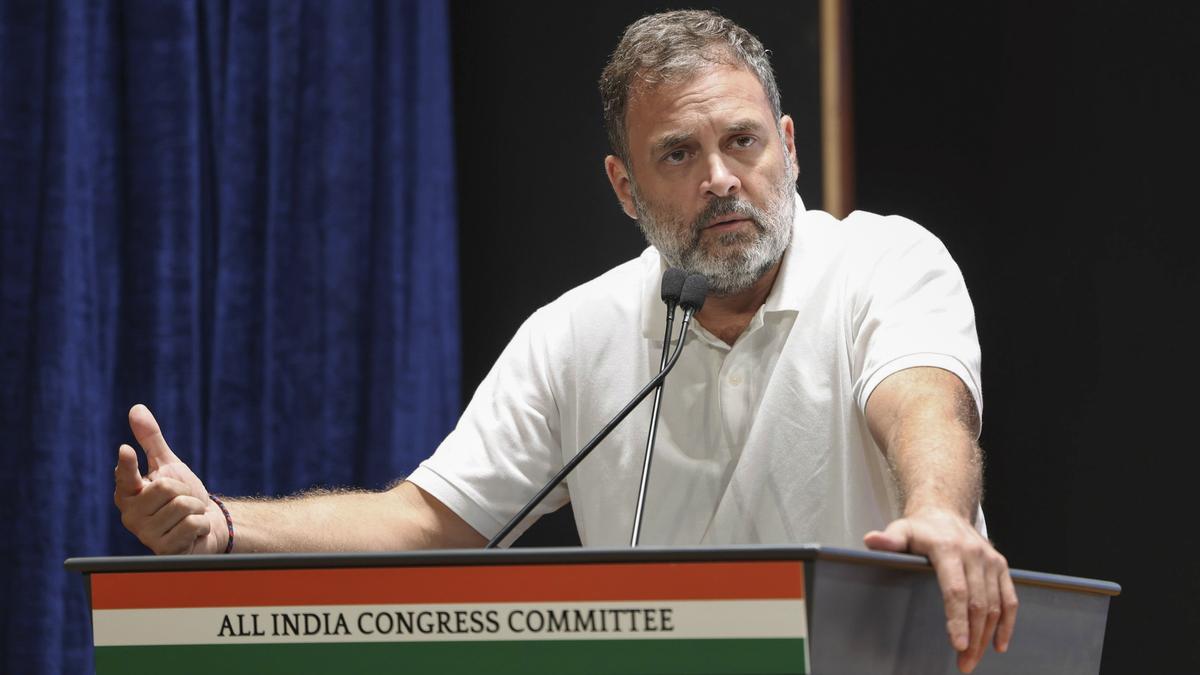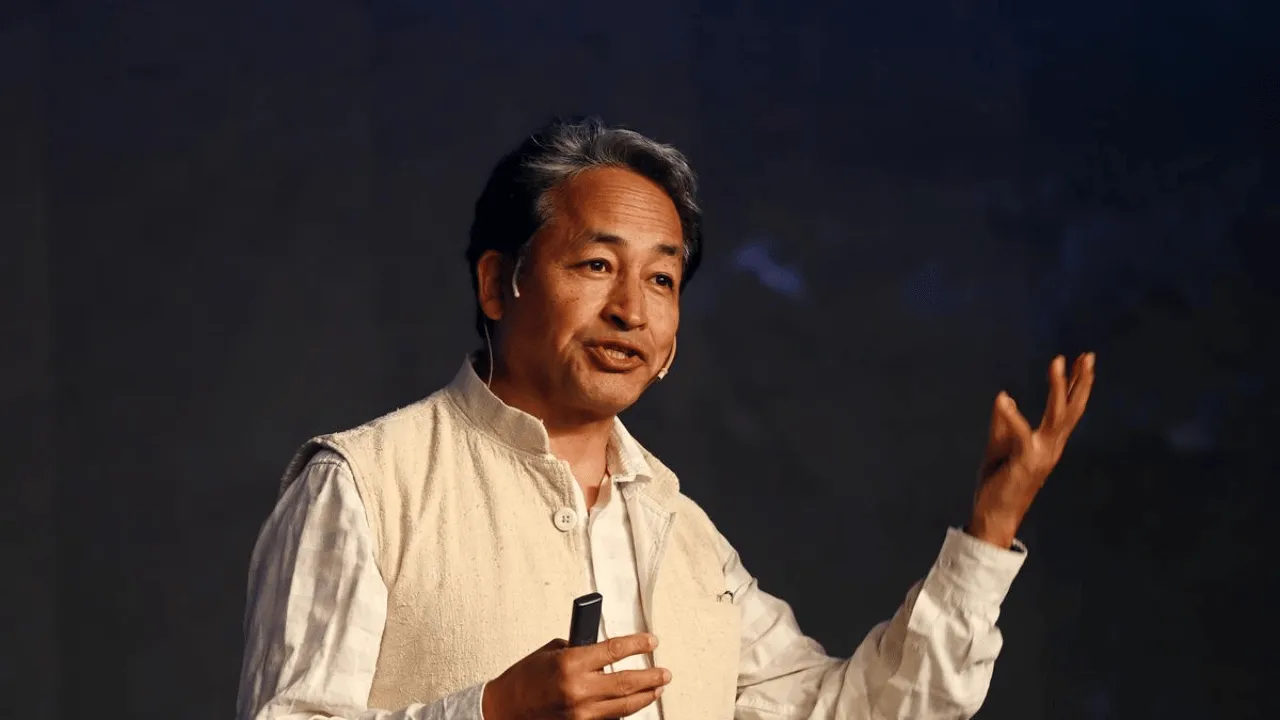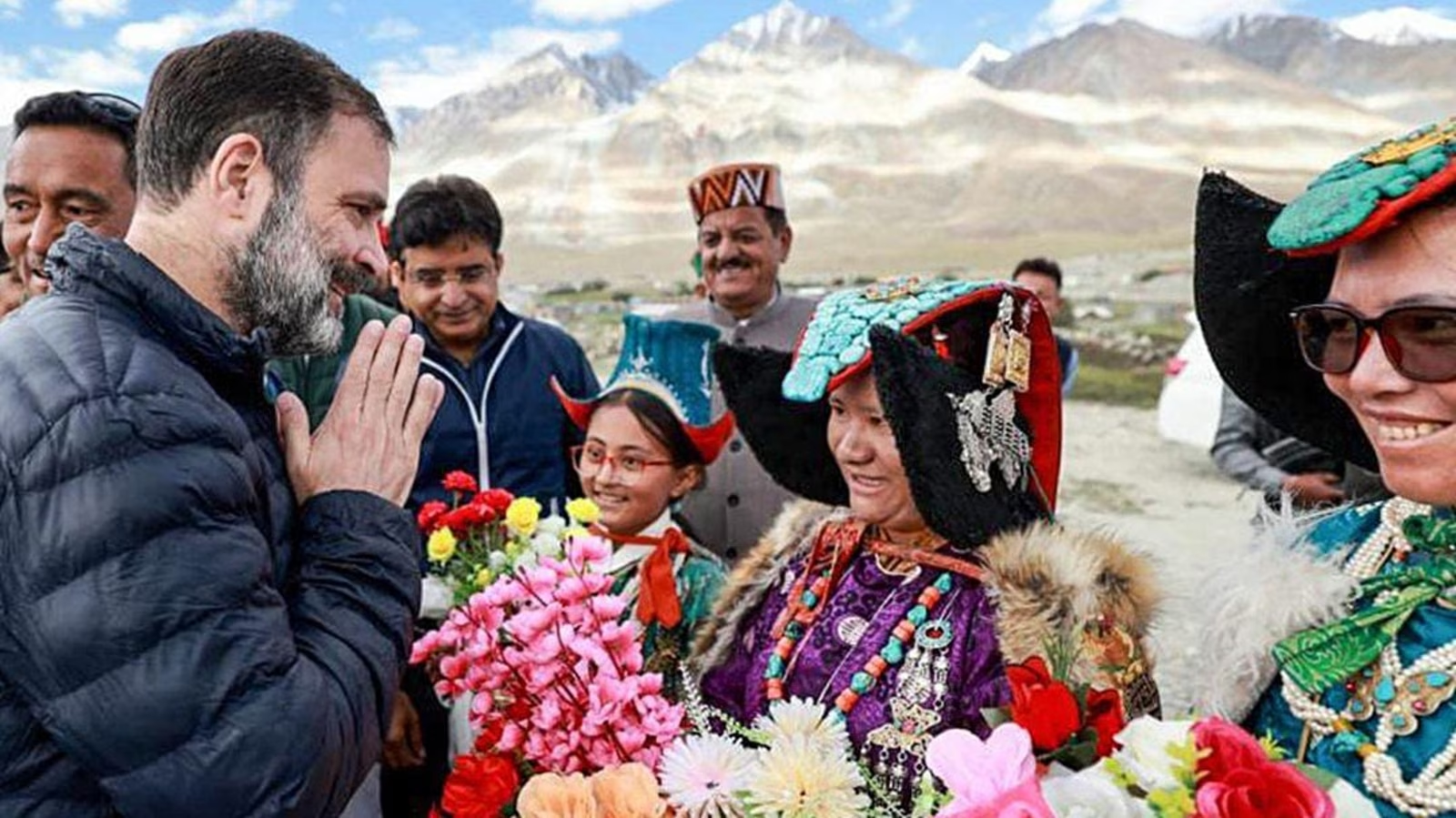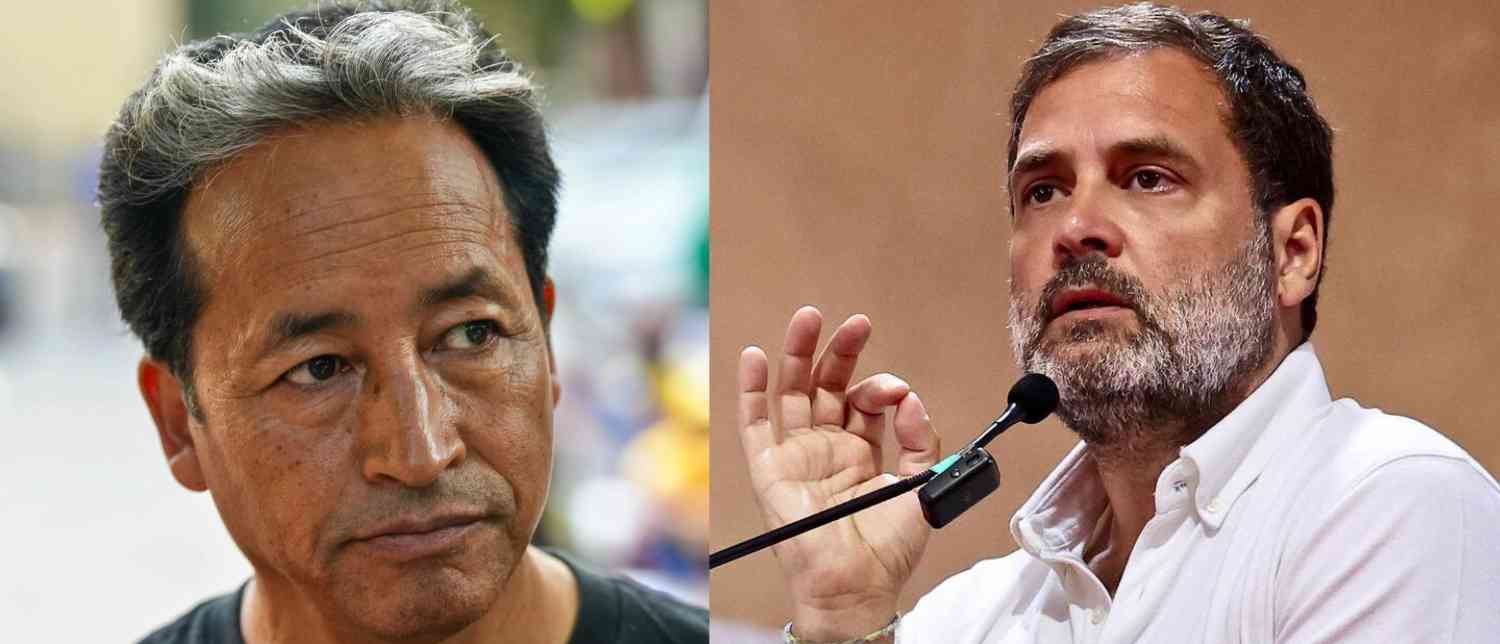Rahul Gandhi has recently urged the Government of India to include Ladakh under the Sixth Schedule of the Indian Constitution. This call comes amid rising tensions and violent protests in the Union Territory, where demands for special rights and protections have gained momentum following the region’s reorganisation in 2019.

The Sixth Schedule of the Constitution provides special status and autonomous powers to tribal areas in some northeastern states of India. These provisions allow greater control over local governance, protection of land rights, and safeguarding of cultural traditions. Many Ladakh residents have sought similar protections, citing a loss of rights after the erstwhile state of Jammu and Kashmir was bifurcated into two union territories— Jammu & Kashmir and Ladakh—in 2019.
Rahul Gandhi, Leader of Opposition in the Lok Sabha and senior Congress leader, has strongly backed this demand. He claimed that Ladakh’s unique people, culture, and traditions are presently under threat. Gandhi criticised the ruling Bharatiya Janata Party (BJP) and its ideological mentor, the Rashtriya Swayamsevak Sangh (RSS), for what he described as attacks on the region’s heritage and calls for violence and intimidation against protesters. He condemned the recent deaths of four young men during clashes with security forces amid protests in Leh and the arrest of climate activist Sonam Wangchuk, who has been a vocal advocate for Ladakh’s inclusion in the Sixth Schedule and statehood.
The protests began as largely peaceful demonstrations calling for greater autonomy and safeguards but escalated into violence on 24 September 2025, resulting in fatalities and injuries. Wangchuk’s arrest under the National Security Act and his subsequent detention in Jodhpur jail have been controversial, with critics denouncing the government's handling of the unrest and accusing it of silencing legitimate dissent.

The demand for Sixth Schedule status is rooted in the desire to protect Ladakh’s distinct identity and ensure that governance structures respect local customs and ecological sensitivities. Similar provisions currently govern tribal areas in Assam, Meghalaya, Tripura, and Mizoram, where autonomous councils administer important local affairs. Advocates argue that extending this framework to Ladakh could foster peace, development, and cultural preservation.
However, the issue is complex. Some central government officials and critics view the unrest and demands as a challenge to national integration and security, citing concerns about external influences and alleged incitement. The government has linked some of the violence to provocative speeches and outside interference, leading to a crackdown on activists and stricter law enforcement measures.
Given these developments, Ladakh stands at a pivotal moment. The call for Sixth Schedule inclusion reflects deeper anxieties about identity, governance, and rights in a strategically important border region. While the Indian government navigates these challenges, the demand underscores the need for dialogue, understanding, and policies that balance national interests with respect for local aspirations.

In summary, Rahul Gandhi’s push to include Ladakh under the Sixth Schedule sheds light on a significant constitutional and political debate. It highlights the ongoing struggle of the Ladakhi people for recognition and protection of their unique cultural and territorial rights within India’s federal framework. The situation calls for a measured response that promotes peace, respects democratic rights, and addresses the complexities of this sensitive region.
This development remains closely watched across political circles and the diverse communities of Ladakh, reflecting a broader conversation about the future of India's union territories and their governance.
With inputs from agencies
Image Source: Multiple agencies
© Copyright 2025. All Rights Reserved. Powered by Vygr Media.























